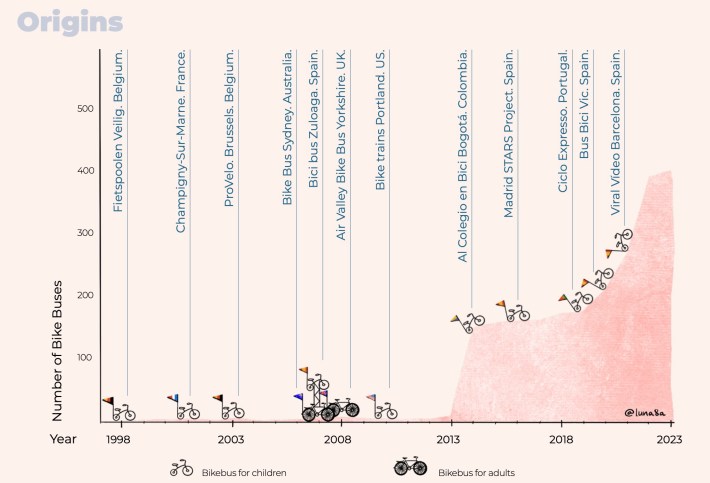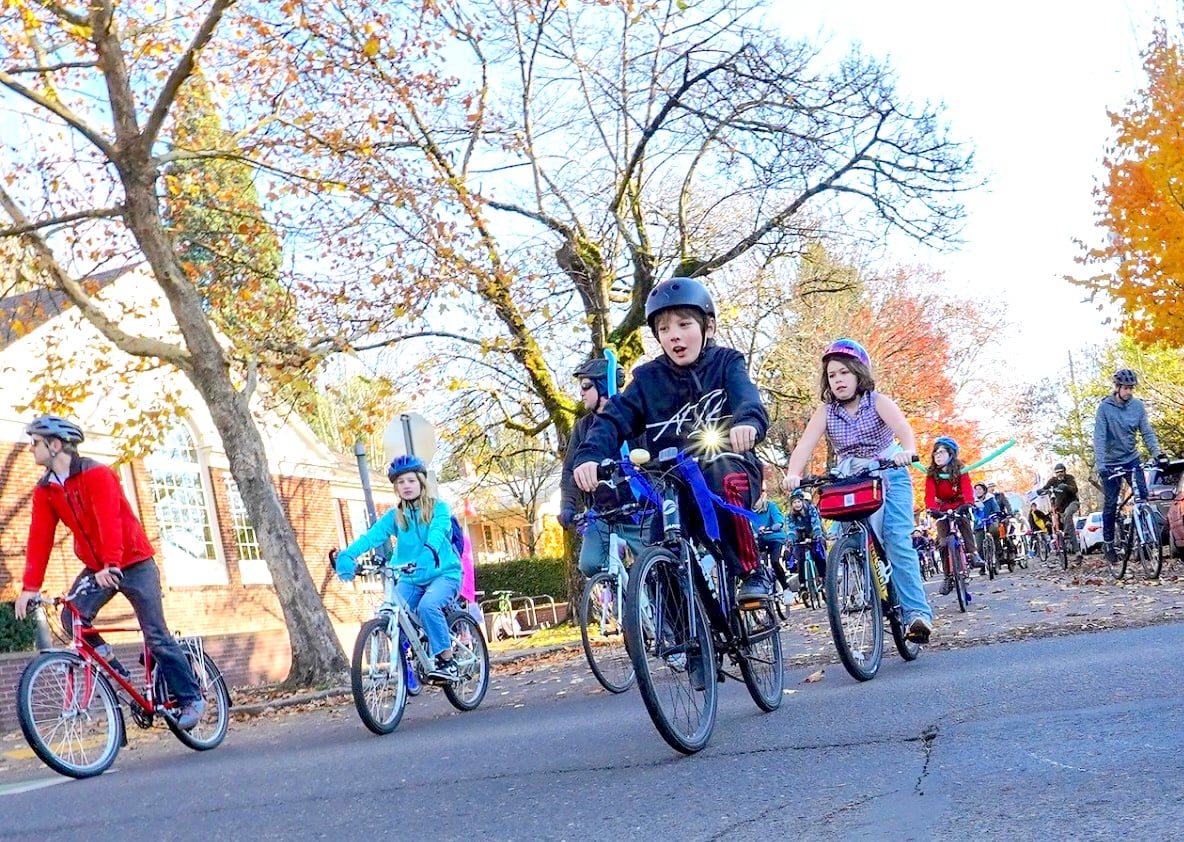Editor's note: this article originally appeared on Bike Portland and is republished with permission.
A university based in Barcelona, Spain has released the first-ever report on bike bus efforts around the globe.
The report, from the City Lab Barcelona research group at Institut de Ciència i Tecnologia Ambientals de la Universitat Autònoma de Barcelona (ICTA-UAB), summarizes key findings from interviews with 22 bike bus leaders in eight countries.
Bike buses took off in 2021 when a Barcelona effort went viral online. But, according to this new report, the organized bike bus took place in Brecht, Belgium in 1998. “Today, Bike Bus has evolved from a set of isolated initiatives into a global movement that aspires to influence city policy and participate in the global conversation about building child-friendly cities.”

The takeaway I found most notable is that for most bike bus leaders, riding bikes to school together is just the vehicle that allows them to push for larger, more systemic changes to the transportation and road safety system. 94% of the 145 survey respondents said the bike bus is a form of activism. This tracks with sentiments we often hear from new parents, who become radicalized around bike activism after riding on streets with their kids and experiencing first-hand how stressful it can be.
The survey also found that without riding together as a group, just 10% of survey respondents said they’d feel safe biking to school because of inadequate infrastructure. That figure might also explain why 37% of bike bus participants are parents who ride with their kids.
On a related note, the survey found that the average age of bike bus riders is 8 years old, that the average size is 17 (10 children, seven adults), and the typical route is less than two miles.
While researchers counted over 470 bike buses worldwide that transport approximately 32,000 children to school per week (numbers that are likely even higher), they also noted red flags in the long-term viability of the movement. Currently the efforts are organized and funded by individual leaders (like parents and teachers). That’s enough to start and build a bike bus, but if they are to become institutionalized parts of school transportation, they must find more stable funding and organizational capacity.
That last finding validates the successful passage of statewide legislation in Oregon last year that will help enshrine government support. On the flip side, more government support — and the political strings attached to it — might reduce advocacy potential. One way to balance things out, researchers found, is to make sure parents and cycling activist groups stay involved.
This is the first significant piece of bike bus research we’ve come across, but it surely won’t be the last. We’re looking forward to the U.S.-based bike bus research project currently in progress from Portland State University’s Transportation Research and Education Center (TREC).






